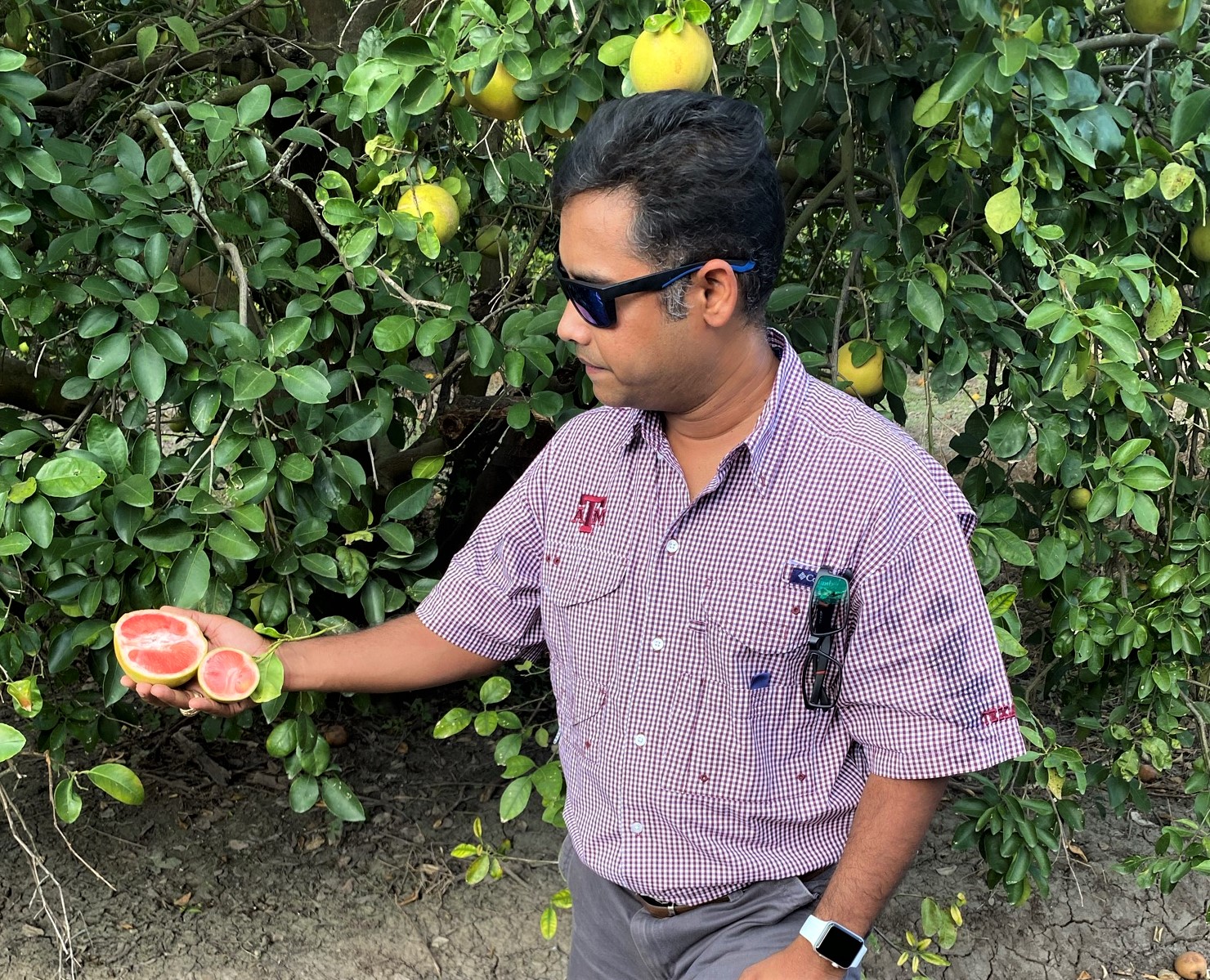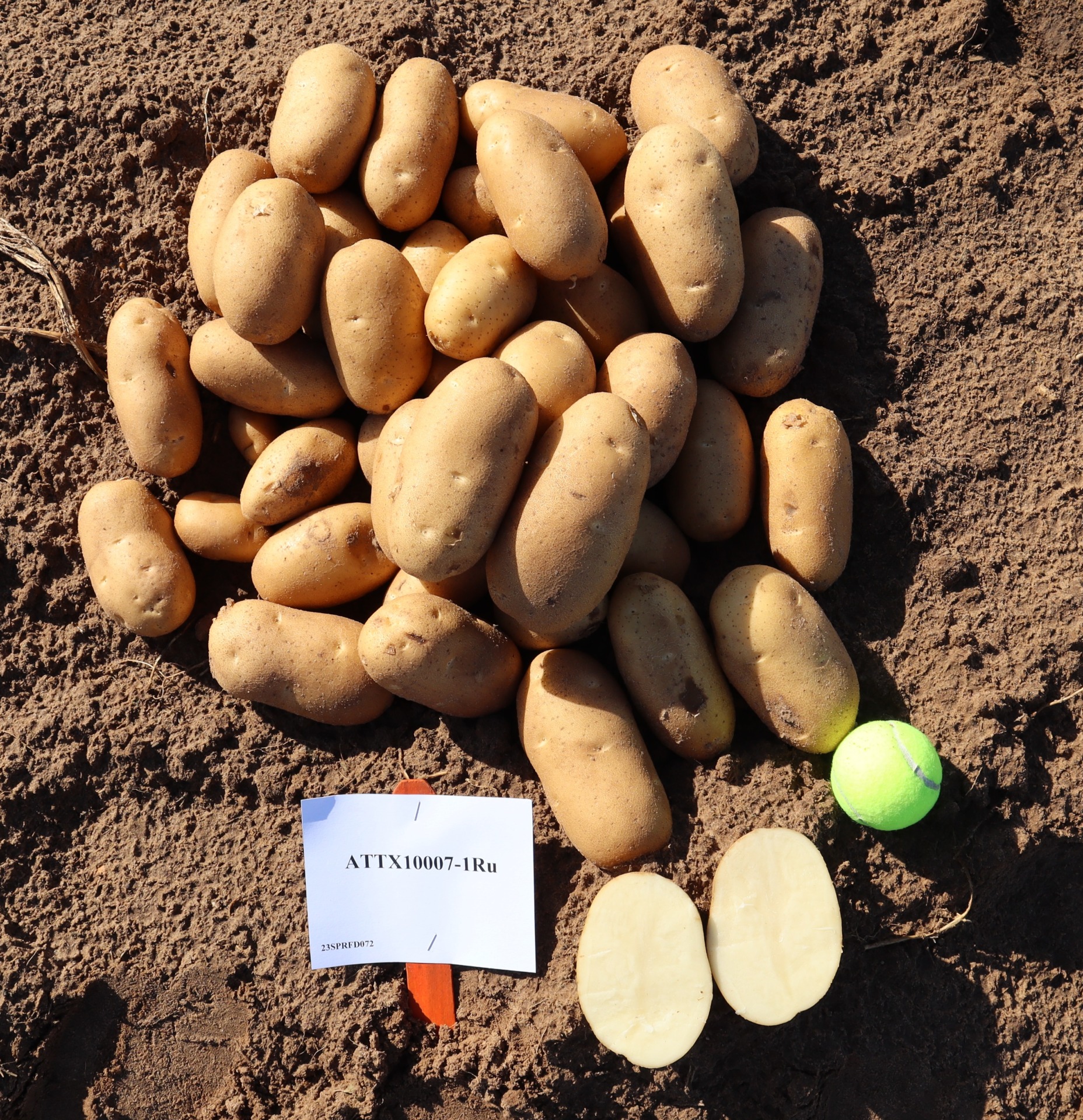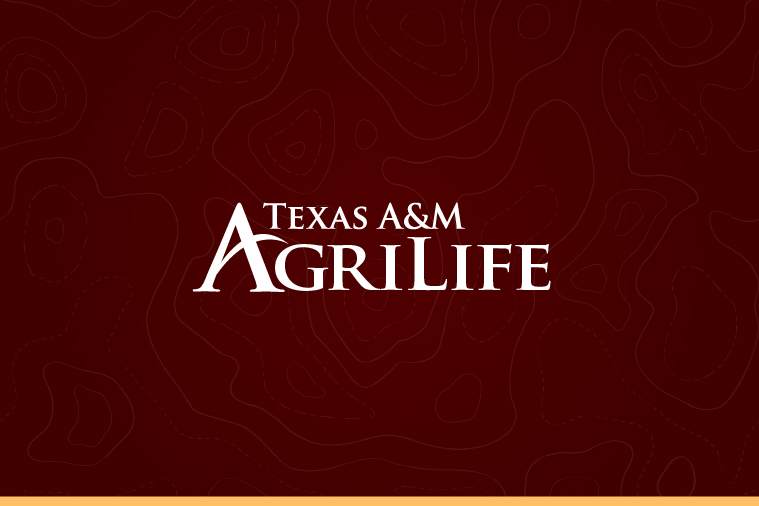Reveille Russet makes a name for itself in the potato market
Texas A&M potato breeding program wraps up another year with a successful variety
Writer: Kay Ledbetter, 806-677-5608, [email protected]
Contact: Dr. Creighton Miller, 979-845-3828, [email protected]
SPRINGLAKE – With Reveille as an early morning roll call and the name of the Texas A&M University mascot, what better name to give to an early maturing potato variety developed by the Texas A&M Potato Breeding and Variety Development Program.
Fields of the new variety could be seen adjacent to the potato plots featured in the 2015 annual Potato Field Day held recently near Springlake on the Barrett Farm and hosted by Texas A&M AgriLife Research and the Texas A&M department of horticultural sciences.

Dr. Creighton Miller, AgriLife Research potato breeder in College Station, said his program annually plants first-year seedlings in field trials located near Springlake and Dalhart. This year, they planted 79,000 seedlings from 392 families or crosses in the trials between the two locations.
Miller said many of these seedlings come from exchanges with other universities such as North Dakota State, Oregon State and Colorado State. At the recent field day, 280 selections were displayed side-by-side with vines and dug potatoes.
National and international representatives from many different facets of the industry, from seed to transportation, were at the field day to look at the new potato varieties, which included red, white, purple and russet skinned potatoes with both white and yellow flesh, some round, some oblong and all headed to one of three markets: fresh, processing or chipping.
“The major news this year is our new variety called Reveille Russet,” Miller said. “We named it this because reveille is the first call to stations and this one is an early variety. Reveille is also the name of the A&M mascot.”
The variety is a russet baking potato headed to the fresh market. The attributes that make it stand out are taste and flavor, he said.
“In all our taste panels, the ratings were very high,” Miller said. “It also has wide adaptability, as it has been successfully grown in Idaho, New Mexico, Colorado, Michigan and here in Texas, so it can be grown across the nation.

“Also, its earliness allows growers to get their crop out before bad things happen after maturity. It also doesn’t seem to skin as much as some of the current varieties, which has an impact on consumer appeal in the store.”
Another important quality, he said, is its “high pack-out,” which means most of the tubers grown are marketable.
But Reveille Russet is not the only selection they are watching. Miller said there are several others coming along, one called Peppermint, which has red eyes and some red splash. This potato includes the good unique attributes of the long established red variety, Red LaSoda, but with a white skin.
Another is a pinto, a potato with yellow flesh and yellow and red skin, which will give it appeal in the specialty market, he said. And another russet making its way through the breeding program is very yellow fleshed.
“Unlike in Europe, in the U.S. we’ve had primarily white fleshed potatoes, and it is unique to have a russet potato with a yellow flesh,” Miller said. “The Yukon Gold has made a hit in the U.S. with its yellow flesh.
“Overall, we’ve had a good year,” he said. “There have been problems with late blight in the lower Rio Grande Valley with the earlier crops, but so far it has been a good year in the High Plains.”





